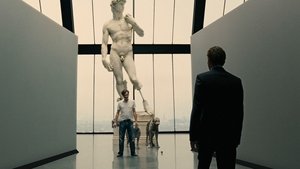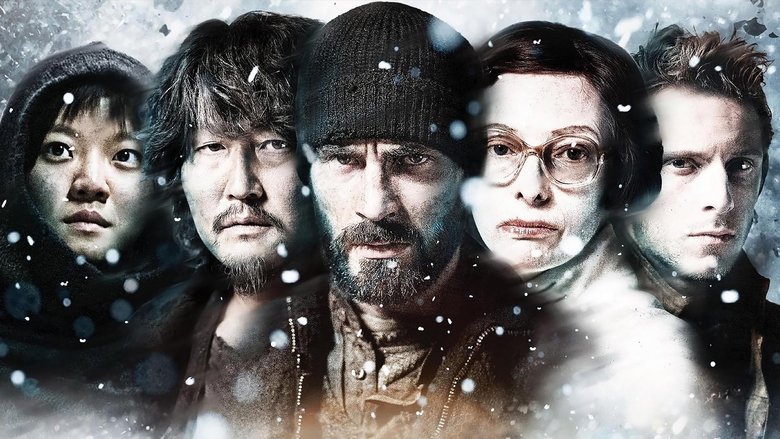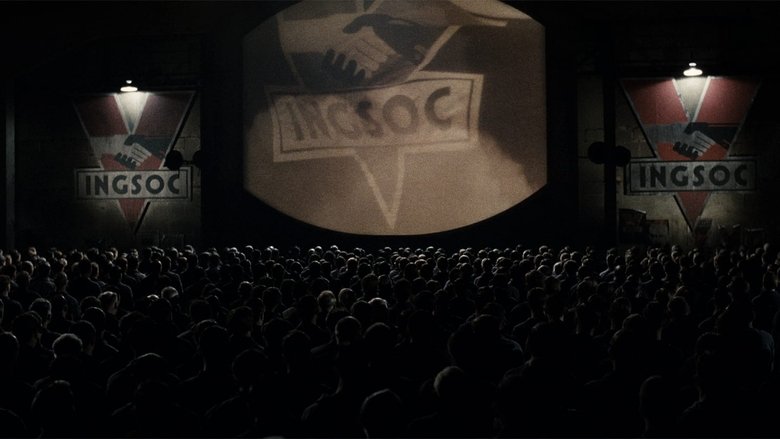top dystopian movies that define the genre
Dystopian films offer a gripping glimpse into bleak futures shaped by societal collapse, authoritarian regimes, and technological control. This list highlights some of the most influential dystopian movies that have left a lasting impact on cinema and culture.



Dystopian cinema has long fascinated audiences by exploring dark, cautionary tales about the future of humanity. From the neon-lit, rain-soaked streets of Blade Runner (1982), which introduced audiences to a visually stunning vision of a corporate-dominated world, to the chilling surveillance state of Nineteen Eighty-Four (1984), these films challenge viewers to question authority and technology. The surreal bureaucracy and oppressive control in Brazil (1985) offer a satirical yet haunting look at totalitarianism.
The late 1990s brought a new wave with The Matrix (1999), redefining action and science fiction while delving into themes of reality and control. Later entries like Children of Men (2006) presented a grim future plagued by infertility and social collapse, while V for Vendetta (2006) became an anthem for resistance against tyranny. Modern takes such as Mad Max: Fury Road (2015) and Snowpiercer (2013) deliver high-octane narratives set against apocalyptic backdrops, blending intense action with social commentary.
Interestingly, some dystopian films like The Hunger Games (2012) and Ready Player One (2018) mix dystopian elements with adventure and hope, attracting a broad audience. Others, like Bird Box (2018), explore psychological terror within dystopian frameworks. Noteworthy is the diversity in settings—from the claustrophobic cityscapes to post-apocalyptic wastelands and even outer space, as seen in Ad Astra (2019).
This rich variety of films not only entertains but also provokes thought about our own world’s trajectory, making dystopian movies a vital and evolving genre in cinematic storytelling.
10. Ready Player One (2018)
Steven Spielberg dives into the world of virtual reality with Ready Player One, set in a near-future 2045 where people escape a crumbling real world by plugging into the OASIS, a vast virtual universe. While not a traditional oppressive political dystopia, the film depicts a society where reality has become so grim that mass escapism is the norm, highlighting societal breakdown and corporate control.
The film is jam-packed with hundreds of pop culture references, particularly from the 1980s, making the hunt for Easter eggs within the movie itself a fun game for viewers. Tye Sheridan plays Wade Watts, a teenager who seeks an Easter egg hidden within the OASIS by its creator, which promises control over the entire virtual world.
Spielberg masterfully balances the vibrant, imaginative virtual world with the starker reality, exploring themes of identity, escapism, and the value of genuine human connection. It's a visually dazzling adventure that reflects on the role of technology and nostalgia in our lives.

9. Mad Max: Fury Road (2015)
George Miller's return to the post-apocalyptic wasteland with Mad Max: Fury Road is a breathtaking, non-stop action spectacle. While perhaps more focused on survival and chase than societal structure, the remnants of a broken world ruled by tyrants like Immortan Joe certainly fit the dystopian landscape.
The film is a masterclass in visual storytelling and practical effects, featuring incredible vehicle designs and stunts performed with minimal CGI. Tom Hardy takes over as Max, but Charlize Theron's Furiosa is arguably the heart of the film, driving the narrative as she attempts to free Immortan Joe's 'wives.'
Miller storyboarded the entire film before writing a full script, treating it almost like a graphic novel brought to life. This approach resulted in a film that is constantly moving and visually dynamic, relying more on action and imagery than dialogue to tell its story. It's an adrenaline-fueled ride through a harsh, unforgettable world.

8. The Hunger Games (2012)
Based on Suzanne Collins' best-selling novel, The Hunger Games catapulted Jennifer Lawrence to global stardom as Katniss Everdeen, a young woman living in the dystopian nation of Panem. Each year, the ruling Capitol forces the twelve districts to send two teenage 'tributes' to fight to the death in a televised event known as the Hunger Games.
The film effectively captures the book's critique of reality television, class disparity, and the dehumanizing effects of oppression. Katniss's defiance sparks a rebellion that has far-reaching consequences throughout the series.
The film's success helped popularize the young adult dystopian genre in cinema. While featuring intense action and survival elements, its core lies in the stark contrast between the opulent, cruel Capitol and the struggling, subjugated districts. It's a compelling story about courage and the fight for survival against overwhelming odds.

7. Snowpiercer (2013)
From Bong Joon Ho, the director of Parasite, comes Snowpiercer, a thrilling sci-fi action film set entirely on a massive train that circles a frozen, post-apocalyptic Earth. The train is a microcosm of society, strictly divided by class, with the wealthy elite living in luxury at the front and the impoverished masses crammed into squalor at the tail.
Chris Evans leads the charge as Curtis, a tail-section inhabitant who leads a revolt to fight their way to the front of the train. The film is a potent allegory for class struggle and social inequality, brought to life through Bong's signature blend of intense action, dark humor, and sharp social commentary.
The design of each train car is unique and visually striking, reflecting the different social strata. It's a kinetic and inventive take on the dystopian genre, showcasing Bong Joon Ho's ability to craft compelling stories within contained, high-concept settings.

6. V for Vendetta (2006)
Set in a totalitarian Britain ruled by a fascist regime, V for Vendetta follows Evey Hammond (Natalie Portman) as she is rescued and subsequently radicalized by a masked anarchist revolutionary known only as V (Hugo Weaving). Based on the graphic novel by Alan Moore and David Lloyd, the film explores themes of oppression, resistance, and the power of ideas.
V's Guy Fawkes mask has become a widely recognized symbol of protest around the world, far beyond the film itself. The story is a potent allegory for political control and the public's role in either accepting or challenging it.
Hugo Weaving delivered his entire performance from behind the mask, relying solely on his voice and body language to convey V's complex personality. The film's release sparked considerable discussion about its political messages and relevance to contemporary society. It's a thought-provoking thriller with a powerful message about freedom.

5. Children of Men (2006)
Alfonso Cuarón's Children of Men presents a bleak, all-too-plausible near future where humanity faces extinction due to mass infertility. The world is collapsing into chaos, with governments struggling to maintain order amidst refugee crises and societal decay.
Clive Owen plays Theo Faron, a disillusioned former activist who is tasked with transporting a young woman who has miraculously become pregnant. The film is renowned for its incredible, long, uninterrupted takes, which immerse the viewer directly into the heart of the unfolding anarchy and tension.
Cuarón and cinematographer Emmanuel Lubezki meticulously planned these complex shots, often involving intricate choreography of actors, vehicles, and special effects. The result is a visceral, emotionally resonant experience that feels incredibly urgent and real. Despite its grim premise, the film finds glimmers of hope in the most desperate circumstances.

4. The Matrix (1999)
When The Matrix exploded onto the scene in 1999, it didn't just redefine action movies; it made audiences question the very nature of reality. The Wachowskis crafted a cyberpunk epic that blended cutting-edge visual effects (hello, 'bullet time'!) with deep philosophical questions.
Keanu Reeves stars as Neo, a computer programmer who discovers that the world he knows is a simulated reality created by intelligent machines. His journey with Morpheus (Laurence Fishburne) and Trinity (Carrie-Anne Moss) to awaken humanity is packed with stunning martial arts choreography and innovative cinematography.
The film draws inspiration from a vast array of sources, including cyberpunk fiction, anime, Hong Kong action films, mythology, and philosophy (like Plato's Allegory of the Cave). Its cultural impact was immense, influencing everything from filmmaking techniques to fashion and popular discussions about technology and reality. It's a film that demands multiple viewings to unpack its layers.

3. Brazil (1985)
Terry Gilliam's Brazil is a wildly imaginative, darkly comedic, and utterly bizarre journey through a retro-futuristic dystopia choked by bureaucracy. Inspired by the works of Franz Kafka and, to some extent, Orwell's Nineteen Eighty-Four, it presents a world where paperwork and regulations have become the ultimate instruments of control.
Sam Lowry, played brilliantly by Jonathan Pryce, is a mild-mannered technician who dreams of escaping the mundane reality of his job and the invasive government. His quest for a woman he's only seen in his dreams leads him down a rabbit hole of administrative errors and escalating absurdity.
The film's production was famously contentious, particularly with Universal Pictures in the US, leading to a lengthy battle over the final cut that became legendary in Hollywood history. Gilliam's visual flair is on full display, creating a world that is both nightmarish and strangely beautiful, filled with pneumatic tubes, tiny cars, and endless forms. It's a truly unique vision of societal collapse.

2. Nineteen Eighty-Four (1984)
Based on George Orwell's seminal novel, Michael Radford's Nineteen Eighty-Four captures the chilling essence of a totalitarian state where 'Big Brother is Watching You.' Released in 1984, the very year the story is set, added an extra layer of eerie relevance.
The film stars John Hurt as Winston Smith, whose quiet rebellion against the Party's oppressive control over thought and history is both heartbreaking and terrifying. Richard Burton, in his final film role, is absolutely chilling as O'Brien, the Party member who becomes Winston's interrogator.
Orwell's novel was a direct response to the political climates of the mid-20th century, and this film adaptation perfectly translates its core anxieties about surveillance, propaganda, and the manipulation of truth to the screen. It's a stark, unsettling look at the dangers of absolute power and the fragility of individual freedom.

1. Blade Runner (1982)
Stepping into the rain-soaked, neon-drenched Los Angeles of 2019 in Blade Runner is an experience unlike any other. Ridley Scott's masterpiece isn't just a sci-fi film; it's a profound meditation on what it means to be human.
The film's stunning visual design, heavily influenced by French comic books and film noir, created the blueprint for the cyberpunk genre. Couple that with Vangelis' haunting, synthesized score, and you have an atmosphere that's utterly captivating.
Did you know the film had a notoriously difficult production? Harrison Ford found the shoot challenging, and the studio insisted on a voice-over narration and a 'happy' ending that Scott famously disliked. The various cuts of the film, particularly the Director's Cut and The Final Cut, offer vastly different viewing experiences, sparking endless debate among fans about the true nature of Deckard and the film's themes. It's a true classic that only gets better with age.

